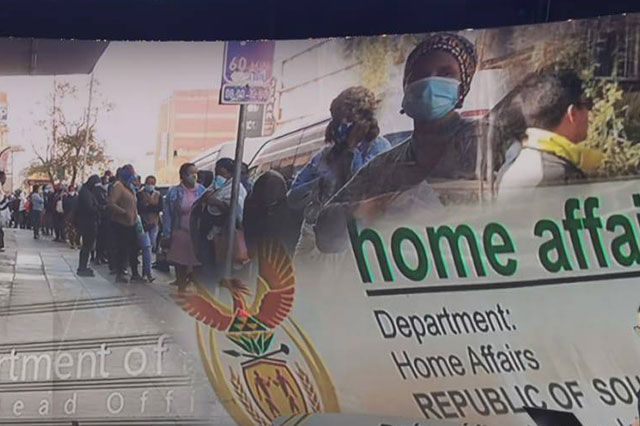Cape Town – The Department of Home Affairs in South Africa argued in the Gauteng High Court in Pretoria on Monday that there is no justification to allow the Zimbabwean Exemption Permit (ZEP) programme to continue.
Home Affairs Minister Aaron Motsoaledi and the department’s director-general Tommy Makhode are seeking permission to approach the Supreme Court of Appeal (SCA) to overturn a previous judgment that declared the termination of the ZEP program as unlawful and unconstitutional.
The leave to appeal application has been opposed by the Helen Suzman Foundation and the Consortium for Refugees and Migrants in South Africa (Cormsa).
According to The Citizen, the lawyer representing the applicants, Advocate William Mokhare, argued that the ZEP programme, introduced in 2009, was always intended to be temporary, allowing Zimbabweans who fled political and economic turmoil in their country to live and work in South Africa until the government was satisfied that it could terminate the programme.
The advocate highlighted that the termination of the ZEP should be examined for its rationality, and he also mentioned budget constraints as a reason for not renewing the programme.
ALSO READ | Home Affairs to challenge court ruling on ZEP termination
“We submit that on a proper scrutiny of this decision, looking at how initially it was taken in 2009 and the purpose it sought to serve and its termination, it is one that is more attune to the policy-laden decision than an administrative decision,” he told Judges Colleen Collis, Mandlenkosi Motha and Gcina Malindi.
The ZEP permit was initially set to expire in December 2022 but was extended multiple times, with the latest extension until December 2023, to give holders an opportunity to apply for other visas provided for in the Immigration Act.
n June, a full bench of the Pretoria High Court criticised the Department and its minister, for not adhering to proper procedures when ending the programme that permitted over 178 000 Zimbabweans to reside and work in South Africa.
As a result of this criticism, the court extended the programme for an additional 12 months, giving the minister the opportunity to follow a more equitable process for its termination, Times Live reported.
Judges Colleen Collis, Mandlenkosi Motha, and Gcina Malindi concluded that the minister had failed to adequately inform or consult the affected individuals, disregarded the rights of children, and lacked substantiating evidence for his assertions.
Consequently, the court instructed the minister to reevaluate the matter through a fair and just process, while also mandating that the department cover the associated costs.
Follow African Insider on Facebook, Twitter and Instagram
Picture: Twitter/@HomeAffairsSA
For more African news, visit Africaninsider.com
Compiled by Betha Madhomu


